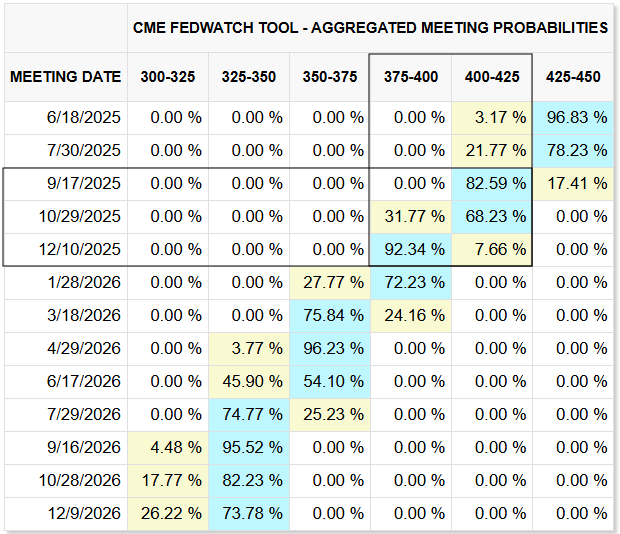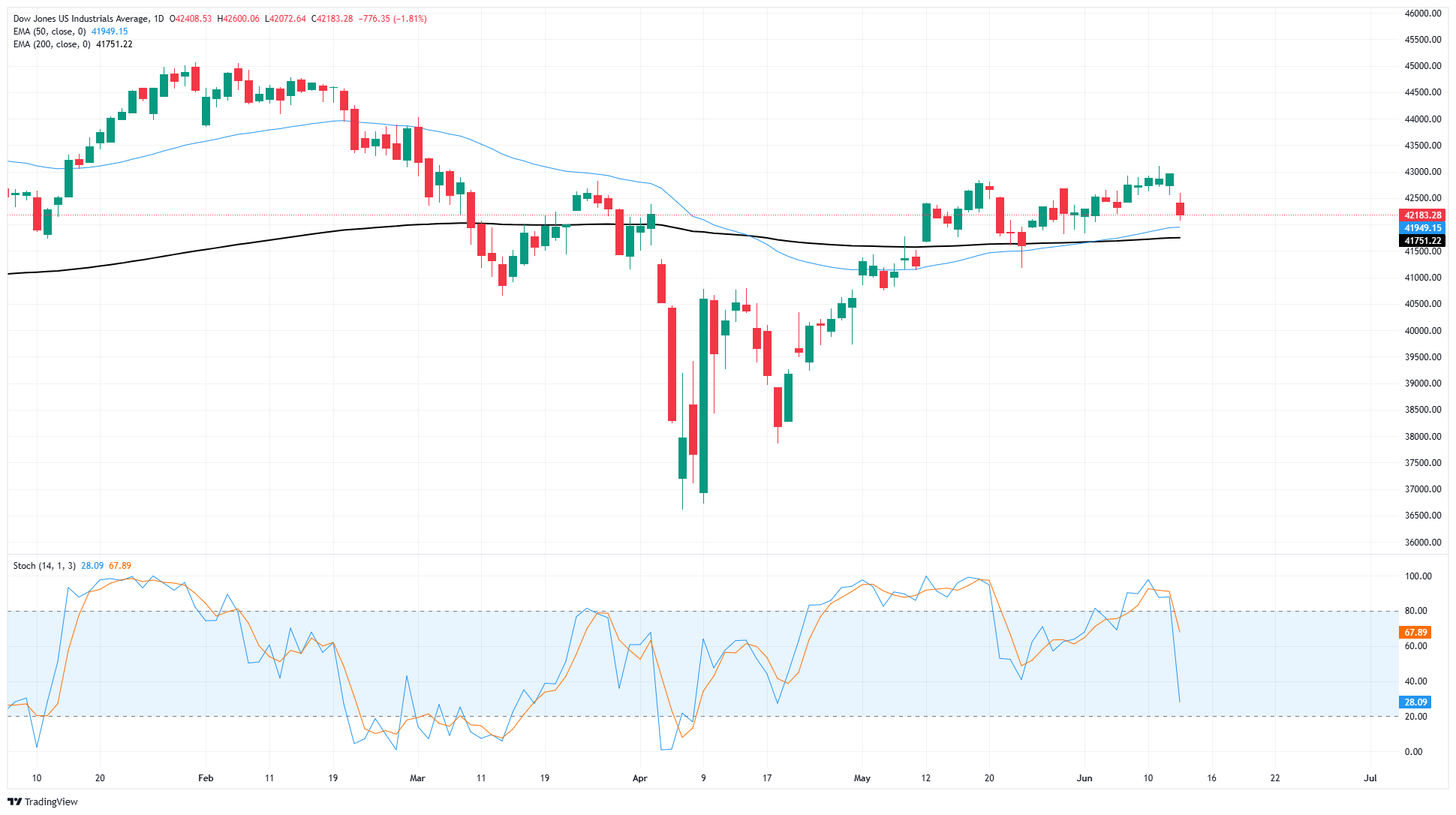
- The Dow Jones fell around 1,000 points from the previous day’s close on Friday.
- Israel launched a surprise round of attacks on Iran late Thursday.
- The attacks, amid an already-tense Middle East, have erased the week’s gains on the Dow.
The Dow Jones Industrial Average (DJIA) fell on Friday, shedding over 1,000 points from the previous day’s close as investors pulled back following Israel’s unexpected wave of strikes on Iran. Consumer sentiment data rebounded more than expected, helping to ease Friday’s downside momentum.
Equity markets, riding the AI-fueled tech rally that has kept them propped up in a post-tariff environment, took the opportunity to de-risk and take a little off the top. This erased the week’s gains and snapped the Dow’s four-day winning streak.
Read more stock news: US stock indices decline after Israeli attack on Iran
The University of Michigan’s (UoM) Consumer Sentiment Index for June rose firmly over the last month, clocking in at 60.5 and handily outrunning the median market forecast of 53.5. UoM 1-year Consumer Inflation Expectations also eased, falling to 5.1% from 6.6%, while 5-year Consumer Inflation Expectations ticked down to 4.1% from 4.2%.
The Federal Reserve’s (Fed) latest rate call is coming up next week. The Fed is broadly expected to remain in wait-and-see mode as the central bank awaits potential fallout from the Trump administration’s whiplash approach to trade policy. Following this week’s better-than-expected inflation prints, rate markets are pricing in around 70% odds of a quarter-point cut in September, with an immediate follow-up rate trim expected in October, but more likely to come in December.

Dow Jones price forecast
It’s been a tough week for position holders in the Dow Jones Industrial Average. After four straight days of hard-fought gains, the major equity index has tumbled back into a recent consolidation zone, putting bullish momentum on pause.
The Dow is still trading above the 200-day Exponential Moving Average (EMA) near 41,800 despite near-term weakness, and the 50-day EMA is in the process of completing a bullish cross of the long-run moving average, implying a fresh leg higher could be in the works if price action complies with technical support from the 42,000 area.
Dow Jones daily chart

Economic Indicator
Michigan Consumer Sentiment Index
The Michigan Consumer Sentiment Index, released on a monthly basis by the University of Michigan, is a survey gauging sentiment among consumers in the United States. The questions cover three broad areas: personal finances, business conditions and buying conditions. The data shows a picture of whether or not consumers are willing to spend money, a key factor as consumer spending is a major driver of the US economy. The University of Michigan survey has proven to be an accurate indicator of the future course of the US economy. The survey publishes a preliminary, mid-month reading and a final print at the end of the month. Generally, a high reading is bullish for the US Dollar (USD), while a low reading is bearish.
Last release: Fri Jun 13, 2025 14:00 (Prel)
Frequency: Monthly
Actual: 60.5
Consensus: 53.5
Previous: 52.2
Source: University of Michigan
Consumer exuberance can translate into greater spending and faster economic growth, implying a stronger labor market and a potential pick-up in inflation, helping turn the Fed hawkish. This survey’s popularity among analysts (mentioned more frequently than CB Consumer Confidence) is justified because the data here includes interviews conducted up to a day or two before the official release, making it a timely measure of consumer mood, but foremost because it gauges consumer attitudes on financial and income situations. Actual figures beating consensus tend to be USD bullish.
Information on these pages contains forward-looking statements that involve risks and uncertainties. Markets and instruments profiled on this page are for informational purposes only and should not in any way come across as a recommendation to buy or sell in these assets. You should do your own thorough research before making any investment decisions. FXStreet does not in any way guarantee that this information is free from mistakes, errors, or material misstatements. It also does not guarantee that this information is of a timely nature. Investing in Open Markets involves a great deal of risk, including the loss of all or a portion of your investment, as well as emotional distress. All risks, losses and costs associated with investing, including total loss of principal, are your responsibility. The views and opinions expressed in this article are those of the authors and do not necessarily reflect the official policy or position of FXStreet nor its advertisers. The author will not be held responsible for information that is found at the end of links posted on this page.
If not otherwise explicitly mentioned in the body of the article, at the time of writing, the author has no position in any stock mentioned in this article and no business relationship with any company mentioned. The author has not received compensation for writing this article, other than from FXStreet.
FXStreet and the author do not provide personalized recommendations. The author makes no representations as to the accuracy, completeness, or suitability of this information. FXStreet and the author will not be liable for any errors, omissions or any losses, injuries or damages arising from this information and its display or use. Errors and omissions excepted.
The author and FXStreet are not registered investment advisors and nothing in this article is intended to be investment advice.






